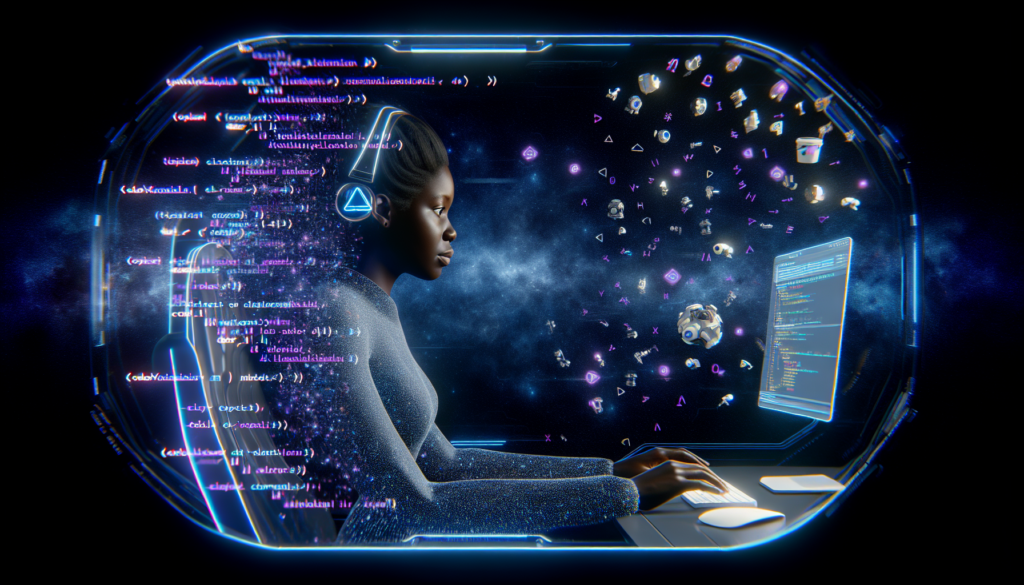Navigating the Code Galaxy: A 2024 Insight into GitHub Copilot’s User Challenges
GitHub Copilot 2024 Challenges: An Overview of Recent Study Findings
As the software development landscape continues to evolve, GitHub Copilot stands at the forefront of innovation, offering unprecedented assistance to developers. However, the journey through this code galaxy is not without its challenges. A recent study has shed light on the complexities and obstacles faced by users of this AI-powered tool. From concerns about the security of code suggestions to the intricacies of intellectual property rights, developers are navigating a new realm of ethical and practical considerations.

Despite its potential to revolutionize programming, GitHub Copilot’s journey is akin to traversing uncharted territories. The balance between embracing new technology and mitigating associated risks is delicate, with the community actively seeking best practices and safeguards.
The conversation around these challenges is not just theoretical; it’s shaping the very fabric of software development. As we move further into 2024, the feedback from developers will be crucial in refining GitHub Copilot’s capabilities and addressing its shortcomings.
AI Code Completion Issues: Top User Challenges Unveiled
The advent of AI code completion has been a game-changer, yet it’s not without its pitfalls. Users have reported a range of issues, from the frustration of inaccurate code suggestions to the more serious implications of code security vulnerabilities. The dependency on AI’s understanding of context can lead to suggestions that, while syntactically correct, may not align with the developer’s intent or project requirements.

The challenge extends beyond mere inconvenience; it touches on the essence of what it means to be a developer in the age of AI. As engineers, the need to remain vigilant and critical of AI-generated code is paramount, ensuring that the human element of creativity and expertise is not lost in the pursuit of efficiency.
GitHub Copilot’s journey is a testament to the intricacies of human-AI collaboration. The challenges it presents are not insurmountable, but they do require a thoughtful approach to integration and use.
Improving Developer Productivity with GitHub Copilot Amidst Integration Hurdles
The promise of GitHub Copilot to enhance developer productivity is undeniable. By automating routine coding tasks, it allows developers to focus on more complex and creative aspects of their projects. However, the integration of this AI tool into the developers’ workflow is not without its hurdles. From adapting to its suggestions to ensuring the generated code aligns with project standards, there’s a learning curve to achieving seamless collaboration with the AI.
The key to unlocking the full potential of GitHub Copilot lies in the developers’ ability to harness its power without becoming overly reliant on it. This balance is crucial for maintaining control over the codebase and ensuring the quality of the final product.
As we look to the future, the role of GitHub Copilot in developer productivity will likely grow, but so too will the strategies for its effective integration. The software development community must remain proactive in sharing best practices and overcoming the challenges that come with any groundbreaking technology.
GitHub Copilot Best Practices Los Angeles: Mitigating Common Problems
In the tech-savvy city of Los Angeles, developers are at the forefront of adopting and adapting to GitHub Copilot. Best practices are emerging as a way to navigate common problems and fully leverage the tool’s capabilities. These practices include a rigorous review of AI-generated code, a clear understanding of when to accept or reject suggestions, and a commitment to continuous learning to stay abreast of GitHub Copilot’s evolving features.
Bee Techy, a software development agency in Los Angeles, is leading the charge in establishing a set of guidelines to help developers make the most of GitHub Copilot. By fostering a culture of innovation and collaboration, Bee Techy empowers its developers to use AI as a partner in the creative process, not a replacement.
The best practices developed in Los Angeles are not just for local developers; they have the potential to shape the global conversation around GitHub Copilot and set a standard for its use worldwide.
AI-Assisted Coding Future Trends: Industry Expert Insights and GitHub’s Response
The trajectory of AI-assisted coding is a hot topic among industry experts, with predictions ranging from transformative impacts on the software development process to concerns about job security. GitHub Copilot is at the center of this discussion, representing both the potential for increased productivity and the need for a new paradigm in developer roles.
In response to these trends, GitHub is continuously refining Copilot, incorporating user feedback, and addressing ethical considerations. The future of AI-assisted coding is not set in stone; it is being shaped by the actions and reactions of the developer community and the responsiveness of platforms like GitHub.
As we look to the horizon, it’s clear that AI-assisted coding will remain a significant force in the industry. The commitment to navigating its challenges and capitalizing on its opportunities will determine the course of this technological revolution.
Are you ready to embark on the journey through the code galaxy with GitHub Copilot? Bee Techy is here to guide you through the challenges and help you harness the power of AI in software development. Contact us for a quote and let’s explore the future of coding together: Get a Quote.
